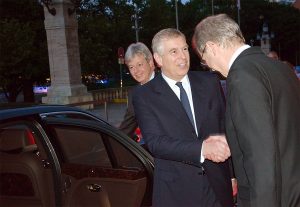In the USSR, there was a large and strong support system of inventive incentives. A continual chain was created, beginning from a factory rationaliser and ending by an academician. The chain at each its part gave a contribution to scientific and technological progress and provided an opportunity to use a creative potential to anyone who felt like it.
But the state was not just limited to the support system. The state forced to invent. At the end of the seventies the number of inventor's certificates was one of the most important factors for rating of activities of a huge amount of research organisations. A Patent Department was organised in any Engineering Department or research organisation, in any university or manufacture. All innovative developments went through such a Patent Department.
In parallel, there was a strong innovation support system in all fields and in all levels of the state, beginning from free of charge help in preparing the application documents using All-Union Society of Inventors and Rationalisers, and ending by large system of in-house bonuses and even discounts for apartment rent for inventors and rationalisers. The aforementioned ways allowed the state to keep the world parity rate in the scientific-and-technological field, and consequently to keep factual independence on the global stage.
Despite the fact that the exclusive rights to all intellectual property items belonged absolutely to the state and citizens did not have a possibility to commercialise their inventions, real inventors in the USSR were encouraged by the state. They got a percentage from profit which was given by use of their inventions or after obtaining an Inventor’s Certificate they got a financial gift which was almost a half of average monthly wage in that time. Apart from that they were rewarded with a special badge of honor ‘An Inventor of the USSR’ or with an honorary title: ‘A Honoured Inventor of the Republic’.
ß a badge of honor ‘An Inventor of the USSR’
Moreover, on the last Saturday of June, a specific holiday which called All-Union Inventors and Rationalisers Day was celebrated.
Thus, by the eighties of the last century the Soviet Union achieved leader positions in the world in scientific-and-technological field and kept this level till 1991.
Unfortunately, after the perestroika started and the Soviet Union was disintegrated, the situation dramatically changed. The centralised system of scientific-and-technological development control was destroyed, and expectations the market mechanisms would work automatically were not come up. Weak funding and a reduction of scientific personnel caused Russia to backslide to a very low level.
As time passed the legislation of Russian Federation regarding intellectual property was designed and improved. In October 1992, the Russia’s Patent law was enacted. Since January 2008 the IV Part of Russian Federation Civil code has been in effect. The IV Part of the Civil code consolidated all separated laws existed before in respect to different intellectual property items (for instance, Patent law, Trademarks law, the Law of copyright, etc). In July 2013 the Court for Intellectual Property Rights started to work. As a result, right-holders have obtained a legal basis for protection of their rights and Russian legislation was harmonised with international treaties, conventions, etc.
At the moment there is a stable trend of increasing the number of internal applications. Inventive activity become more intensive and some new government programmes for its support and stimulating have been developed. So, our country gradually but steadily hauls itself out of the crisis.
But let us get back to the history. After breakup of the Soviet Union there was only one company in Russia active in the field of IPR protection and playing the role of collective Patent Attorney. It was state run ‘Sojuzpatent’. Development of the market economy forces in our country created the basis for establishment of private businesses and some active and gutsy IP professionals took a chance and started their own business, but no one knew in that point in time how to form, how to grow their own company in an absolutely new environment. No doubts, that to do such a thing you have to have certain degree of courage and adventurism. And the list of required virtues for the fresh IP entrepreneur was in reality much longer since to convert professionalism into a lucrative business you needed to have knowledge of market rules, basic understanding of company management and it was, obviously, not the same as if to sit in your office composing claims, preparing materials for the Russian Patent Office. And, of course, you needed clients. The state was no longer responsible for bringing you clients. It became your responsibility from now on. Not all IP professionals were prepared to follow this path. At the beginning there was temptation to work with Russian clients only. They speak the same language; they are somewhere near. But, early nineties were the years when the most potential Russian clients experienced lack of funds; state financing was ruined and thus clients mostly hesitated to waste money for protection of their IPRs
It was clear, that if you wanted to feed your business, you had to think about exploration of international markets, to think about search for foreign clients. That way would permit to find reliable, experienced clients with hard currency (and it was life-saving condition then), with interesting applications (which is so important for IP professionals with ambitions, respecting themselves) but this path is not simple at all. You can’t rely on distribution of information/newsletters only. You can’t get a foreign client with the assistance of magic wand. You have to attract attention of your client somehow, catch his eye, win their trust in you with your sustained quality work. If this is a new client for Russia, that’s one thing, one approach; if this is a client willing to change Russian local agent, that’s another story.
The first thing a potential client saw while opening advertising resources was reference about ‘Sojuzpatent’ and few years later into nineties we would meet newly formed IP mammoth ‘Gorodisskiy and the Partners’ which was hatched out of ‘Sojuzpatent’ and few Moscow offices of Big Legal companies from abroad. So, what was to be done? How do you reach potential clients? There’s no secret that Russians in general are not that good in foreign languages. And this is true for IP professionals now, and it was real big problem back then. Most of the specialists in this area didn’t have much of experience in dealing with foreign partners directly and were not experts in business communications. So, when one conceived to establish his own business targeting foreign markets he needed to solve the following problems:
- find really good IP specialists with good command of foreign language;
- find specialists experienced in dealing with foreign businessmen;
- find IP specialists willing to not only be working at the office desk and preparing materials for interaction with the Russian Patent office, but also ready to search for a client on different grounds, which exist on international level in excess;
- have a serious plan of company’s promotion; and,
- have a source of financing.
Those who had managed to solve the above problems had a chance. Evidently, there were some IP professionals who could built relatively good business on former clients (no matter if the clients were Russian or foreign). They operated out of their apartments, teaming as families (mother, father, son/daughter etc.), minimising their expenses and thus surviving. But there was no talk about serious well-established business with interesting targets and various approaches.
On the contrary, those who took risks and managed to go through the perilous times now have new problems, which are the problems of further grows and developments:
- how to keep your existing clients satisfied;
- how to bring up new generation of company’s professionals (choice on the market is very limited);
- how and to what extent you should expand your business;
and many many others.
It looks like it is the very same never-ending story of search for excellence!
Mini Questionnaire:
- What top 3 qualities make a thought leader?
Risk taker, who takes responsibility and never blames subordinates.
Innovative and curious, ready to get new information and study it.
Ready to talk and listen.
- What do you feel you couldn’t live without?
I couldn’t live without new challenges, life is so interesting.
- What motivates you most about your role?
I have team of great professionals with the same mind set behind my back, and they motivate me every 24/7.
Victor Ezhevsky - Managing Partner, Chief Executive Officer (CEO)
Member of AIPPI, INTA, AIPLA, IPO
Elena Davydova – Patent Attorney of the Russian Federation. Chief Patent Department
Member of AIPPI, AIPLA
Russian Patent Company INEUREKA was established in Moscow in the year of 2001. Since then we proved to be one of the most reliable partners among leading IP Law firms of the Russian Federation. The Company renders the whole complex of services regarding all objects of Intellectual Property Protection. We are one of the leading companies in RF in the field of patent annuities and trademark renewals. Our share of the Russian renewal market is more than 15%.
Patent Attorneys and Lawyers of our Company, are highly experienced in intellectual property protection matters, effectively execute professional cooperation with corresponding legal institutions of the Russian Federation responsible for IPP, as well as with Eurasian Patent Organisation, thus providing a needed assistance in successful accomplishment of the most complicated tasks. In shortest possible time INEUREKA secures the most effective solution of its clients’ problems and tasks.
Among INEUREKA clients are both individuals and well-known companies from all over the world. Close cooperation with patent firms in the states of the former USSR facilitates to settle successfully questions related to registration of trademarks or obtaining of patents in these countries.




















